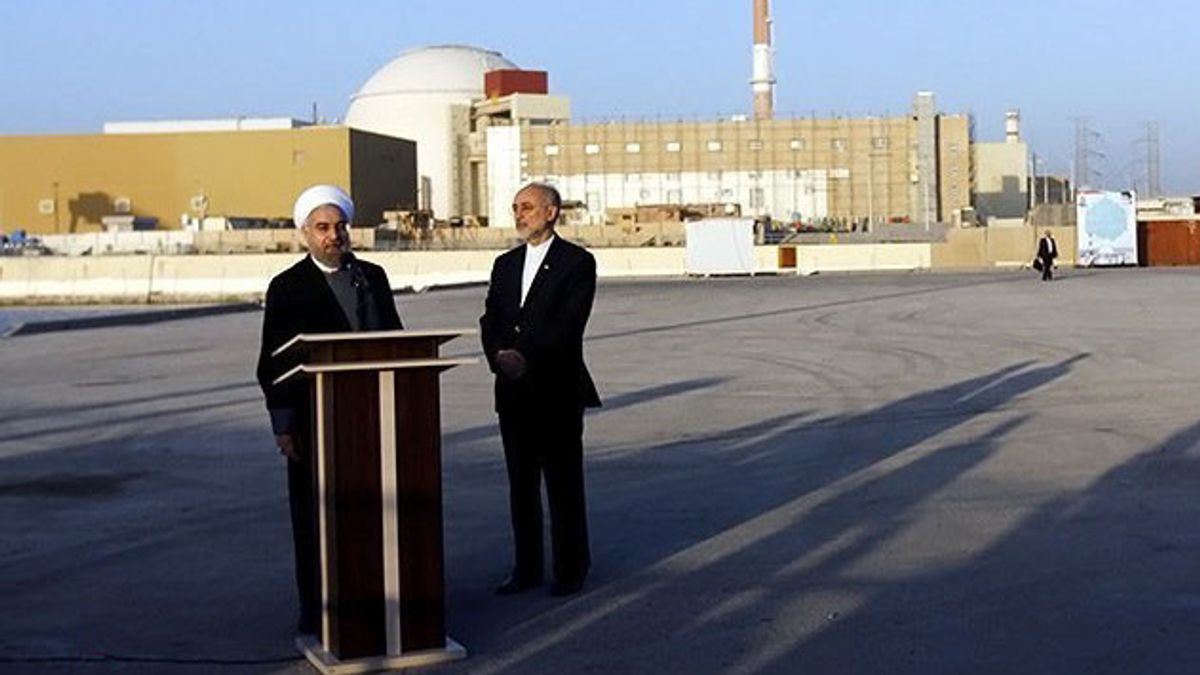JAKARTA - Iran looks forward to the flexibility of the United States to resolve three issues that are still under the spotlight of Tehran, regarding the European Union's 'final' proposal on efforts to restore the 2015 Nuclear Deal.
After 16 months of indirect US-Iran talks with the European Union became a 'liaison' between the two sides, senior Blue Continent officials said they had set out a 'final' proposal on August 8, expecting a response in the coming weeks.
Washington has said it is ready to immediately seal a deal to restore the 2015 Nuclear Deal under the European Union's proposal.
Meanwhile, Iranian negotiators said Tehran's "additional views and considerations" on the EU text would be presented later. European Union officials did not provide details on Iran's response to the text.
"There are three issues that if resolved, we can reach an agreement in the coming days", Iranian Foreign Minister Hossein Amirabdollahian said, indicating Tehran's response would not be a final acceptance or rejection.
"We have told them that our red line must be respected. We have shown enough flexibility. We don't want to reach an agreement that after 40 days, two months, or three months it fails to materialize on the pitch."
The United States says the deal can only be revived if Iran stops the 'foreign' issue, a clear reference to Tehran's demands that the US nuclear watchdog shut down investigations into Iran's unexplained uranium footprint, removing the Revolutionary Guards Corps from Washington's terrorism list.
Diplomats and officials told Reuters whether or not Tehran and Washington accepted the EU's 'final' offer, neither would likely declare the pact dead, keeping it in the interests of both sides.
Amirabdollahian said, "the coming days are very important" and "the world will not end if they fail to show flexibility. Then we will need more efforts and talks, to resolve the remaining issues."
The stakes are high because a failure in nuclear negotiations would carry the risk of a new regional war with Israel threatening military action against Iran if diplomacy fails to prevent Tehran from developing a nuclear weapons capability.
Tehran, which has long denied having such ambitions, has warned of a "devastating" response to any Israeli attack.
"Like Washington, we have our own plan B in case the talks fail", said Amirabdollahian.
President Donald Trump took the US out of the deal in 2018, calling it too soft on Iran, and reimposing tough sanctions. That prompted Tehran to begin encroaching on its uranium enrichment limits.
VOIR éGALEMENT:
Hopes for recovery rose in March, eleven months after indirect talks between Tehran and the administration of US President Joe Biden in Vienna.
But talks fell through due to obstacles, including Tehran's request for Washington to provide assurances that no US president would walk away from the deal as Trump did.
President Biden cannot promise this, because the nuclear deal is a non-binding political understanding, not a legally binding agreement.
The English, Chinese, Japanese, Arabic, and French versions are automatically generated by the AI. So there may still be inaccuracies in translating, please always see Indonesian as our main language. (system supported by DigitalSiber.id)


















